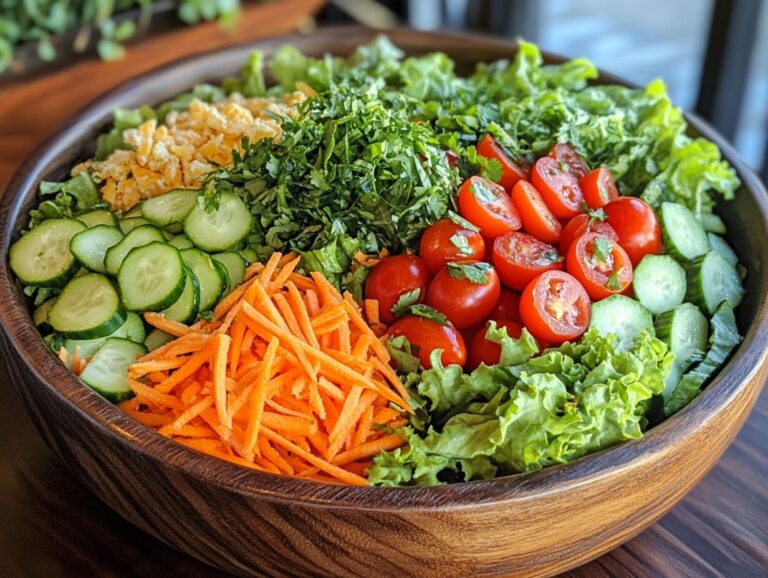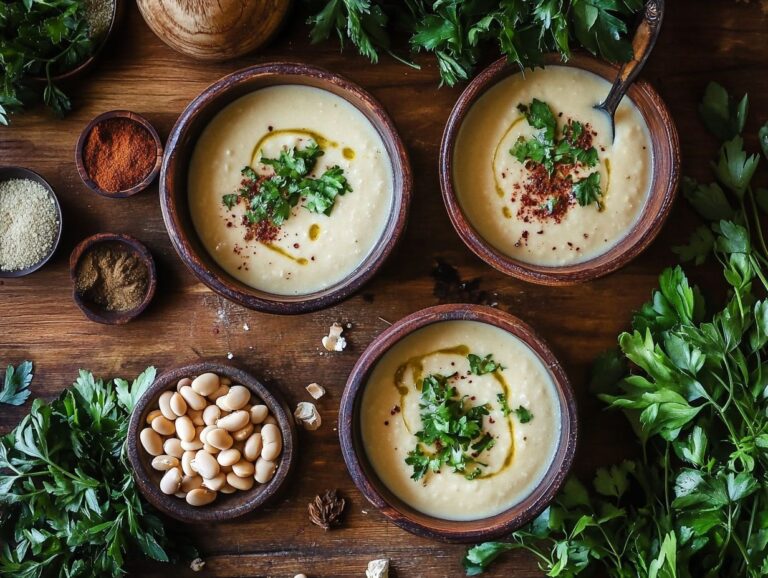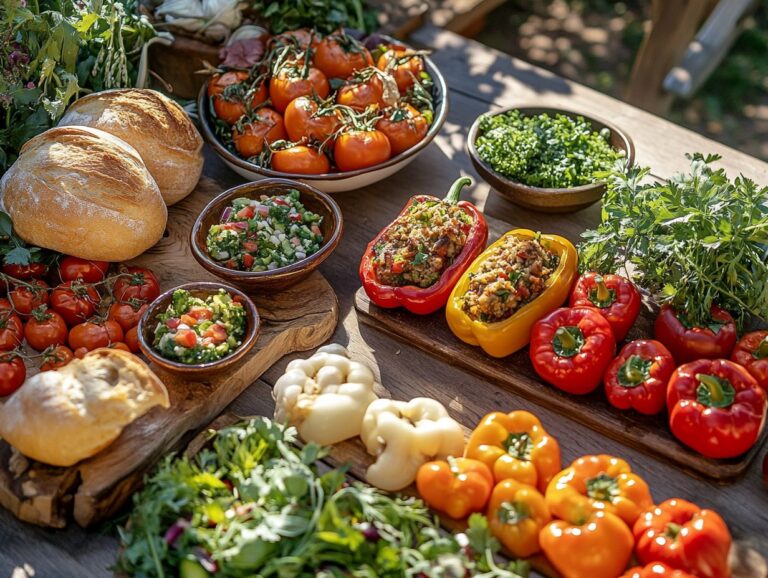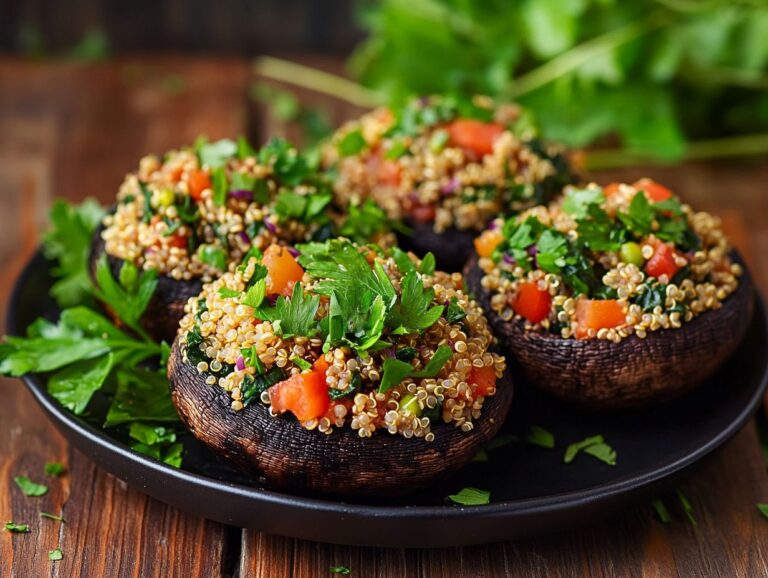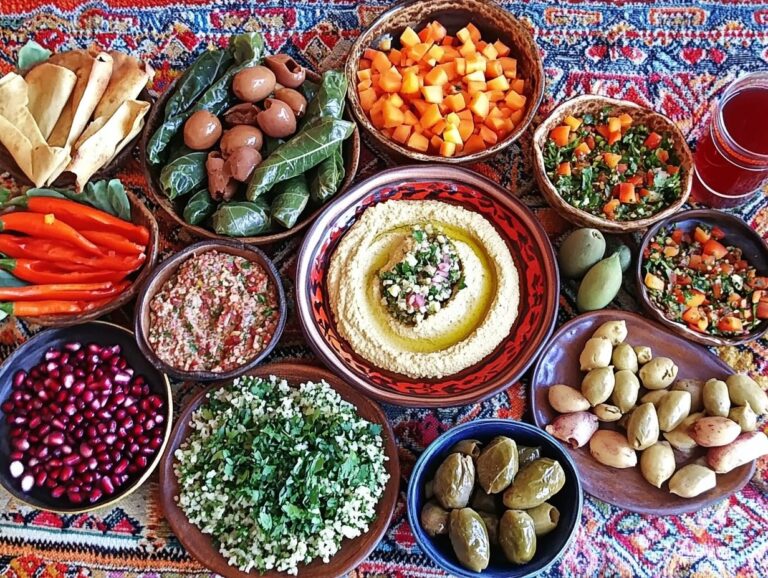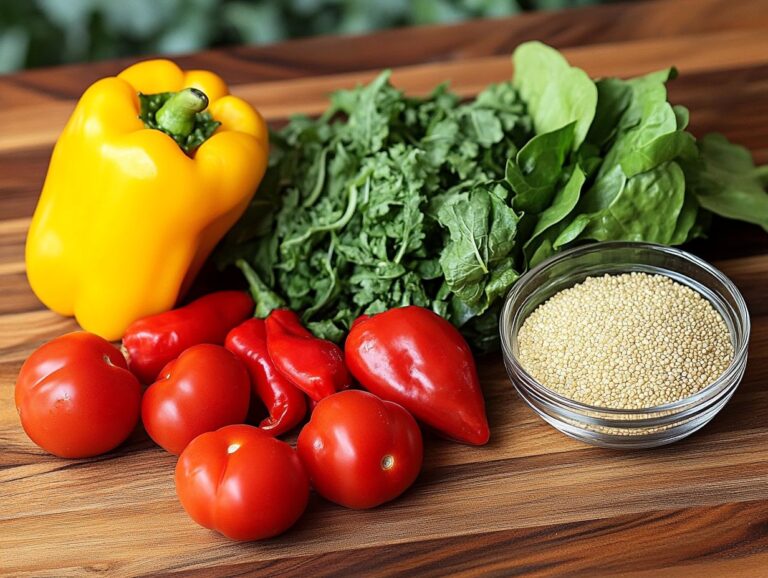This article explores the advantages of veganism and its numerous benefits, which encompass health, environmental, and economic aspects. It delves into the vegan lifestyle, offering easy vegan recipes, and showcases nutritious options for all dietary preferences. It features a variety of easy and delicious five-ingredient vegan recipes that anyone can prepare, along with essential pantry staples and simple ingredients. Additionally, the article discusses the benefits of adopting a vegan lifestyle and provides helpful tips for vegan cooking, including easy cooking techniques and ingredient substitutions, as well as suggestions for incorporating more plant-based meals into your diet. You are sure to find inspiration!
What is Veganism?
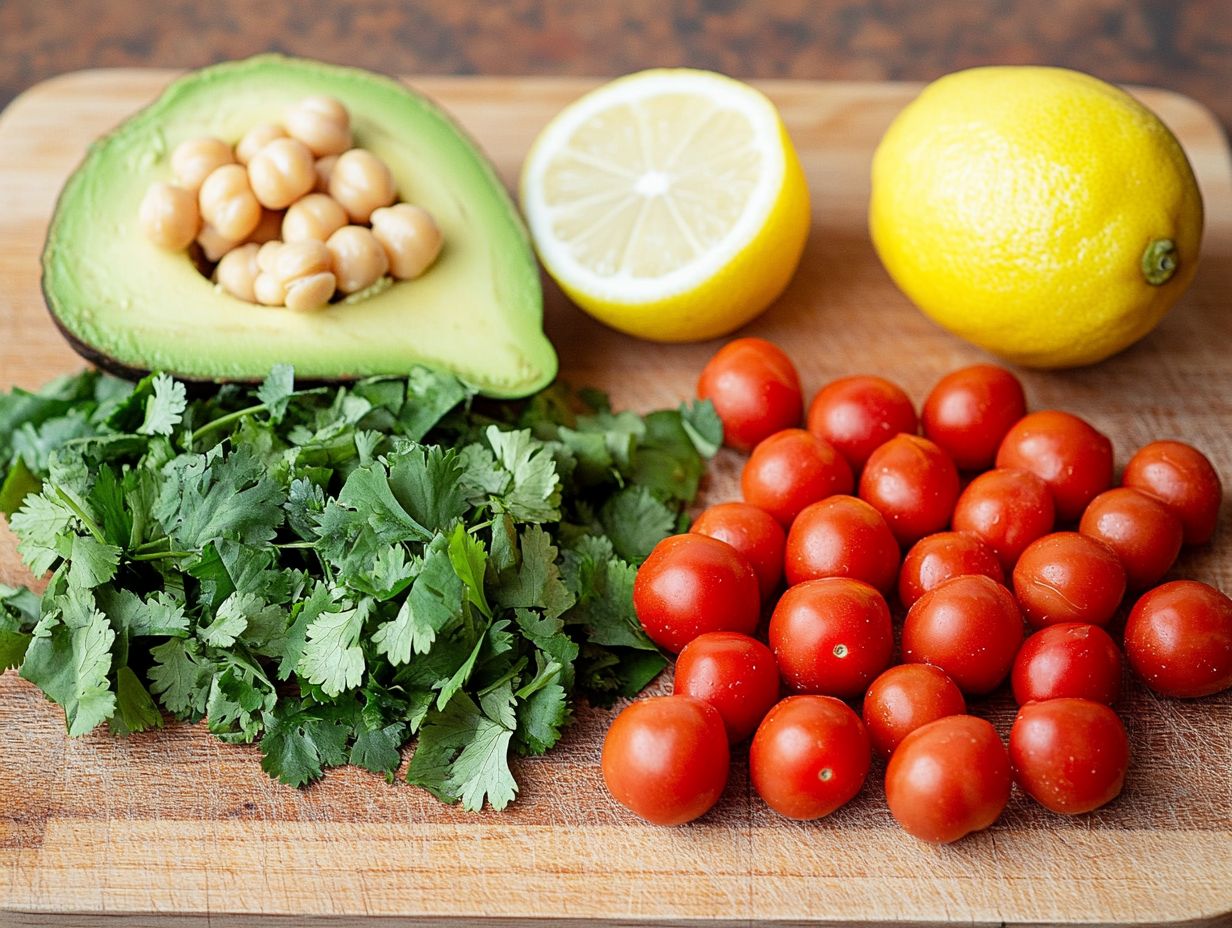
Veganism is a lifestyle that involves abstaining from the use of animal products in both diet and daily life, often incorporating plant-based proteins and fresh produce. It promotes a plant-based diet consisting of fruits, vegetables, grains, nuts, and legumes, emphasizing culinary creativity and sustainable cooking, along with an ethical approach to food that emphasizes sustainability and compassion for animals. By adopting this lifestyle, vegans can enjoy a diverse array of delicious and nutritious meals that positively impact both individual health and the health of the planet.
Veganism embodies a philosophy aimed at reducing harm to all living beings and recognizing the interdependence of all life forms. This philosophy influences dietary choices as well as various other lifestyle decisions to eliminate the use of animal products. Beyond diet, these choices may extend to clothing, cosmetics, household cleaning products, and more, all of which can be sourced without animal-derived ingredients.
The cultural implications of veganism are significant, as it fosters communities dedicated to ethical considerations in food production and animal treatment. Additionally, veganism contributes to the environmental movement, with advocates for plant-based diets working to address issues related to resource depletion and climate change, ultimately creating a healthier planet for future generations.
Benefits of Vegan Cooking
The benefits of vegan cooking include promoting a healthy lifestyle and improving overall health.
Vegan cooking utilizes healthy ingredients that are rich in vitamins, minerals, and healthy fats. It encourages creativity in meal preparation by incorporating a diverse range of seasonal ingredients and sustainable practices, resulting in a variety of flavors and textures.
Health and Environmental Benefits
The health benefits of a vegan diet include lower rates of chronic diseases such as heart disease, diabetes, and certain types of cancer. A clean, plant-based diet rich in fruits, vegetables, whole grains, and legumes provides essential nutrients, promoting meal variety and overall health and energy. Additionally, vegan meals help reduce carbon footprints, decrease water usage, and lower deforestation rates, fostering a more sustainable global food culture through eco-friendly cooking practices.
Vegan Diet: Pros and Cons
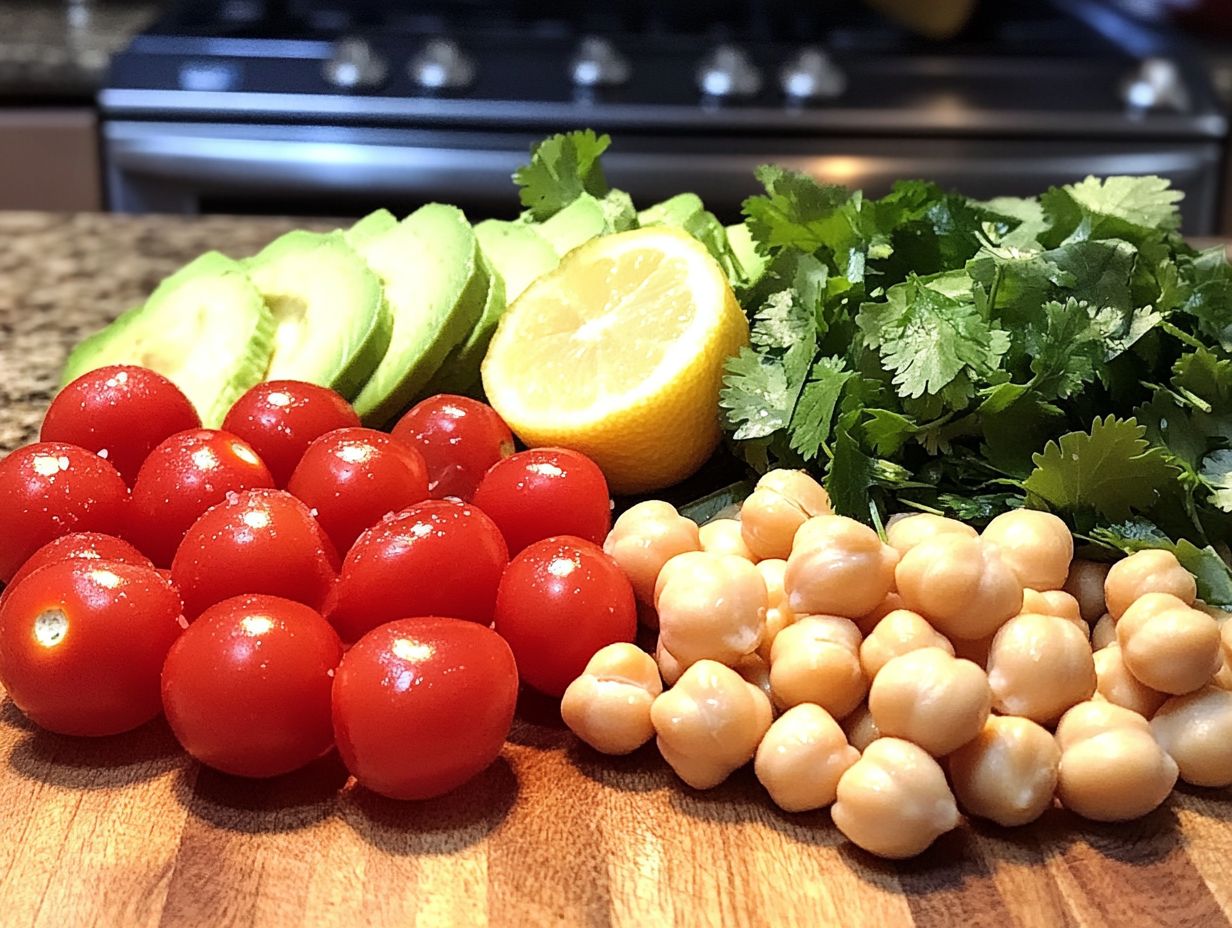
Advantages of a Vegan Diet
- Health Benefits:
- A 25% lower risk of heart disease
- A 15% lower risk of type 2 diabetes
- A 30% lower risk of prostate cancer
- Environmental Benefits:
- A 70% reduction in greenhouse gas emissions
- 1.5 million liters of water saved per capita
- A 58% reduction in deforestation
In terms of land usage, out of the 475 million hectares dedicated to livestock, 339 million hectares are used for grazing, while 136 million hectares are allocated for feed crops. According to the University of Oxford, halving global meat and dairy consumption could lead to significant environmental benefits, including saving 1.5 million liters of water per person. Furthermore, the World Resources Institute states that reducing livestock production by 58% would contribute to a corresponding decrease in deforestation rates.
5-Ingredient Vegan Recipes
Meals that require just five ingredients are among the simplest vegan options to prepare, making them ideal for quickly whipping up delicious dinners, snacks, and desserts.
These 5-ingredient vegan meals save time and allow you to incorporate healthy ingredients without the need for complicated cooking techniques, offering time-saving recipes and comfort food. From soups and salads to main dishes, these quick, easy, and budget-friendly meals are sure to please the entire family, making them perfect family meals.
Easy and Delicious Meal Ideas
Cooking vegan offers a wealth of easy meal ideas that are both delicious and nutritious, providing gourmet flavors and meal variety. The diverse flavors found in vegan dishes create a plethora of options, including soups, salads, snacks, and desserts.
These easy meal ideas inspire creativity in the kitchen, allowing for a variety of culinary experiences with different flavors and taste profiles, enhancing your cooking skills. Vegan meals and snacks provide an exciting range of textures and satisfaction, featuring hearty lentil soups, roasted vegetables infused with spices, and refreshing juices and smoothies made from fruits and greens.
The simplicity of preparing flavorful vegan meals comes from the use of healthy ingredients such as quinoa, chickpeas, and avocados, which are excellent protein sources.
Whether you are whipping up a creamy vegan pasta or crafting a homemade energy bar, these easy meal ideas demonstrate that simple meals can be both extraordinary and satisfying, showcasing the potential for culinary inspiration.
Ingredients to Always Keep in Stock
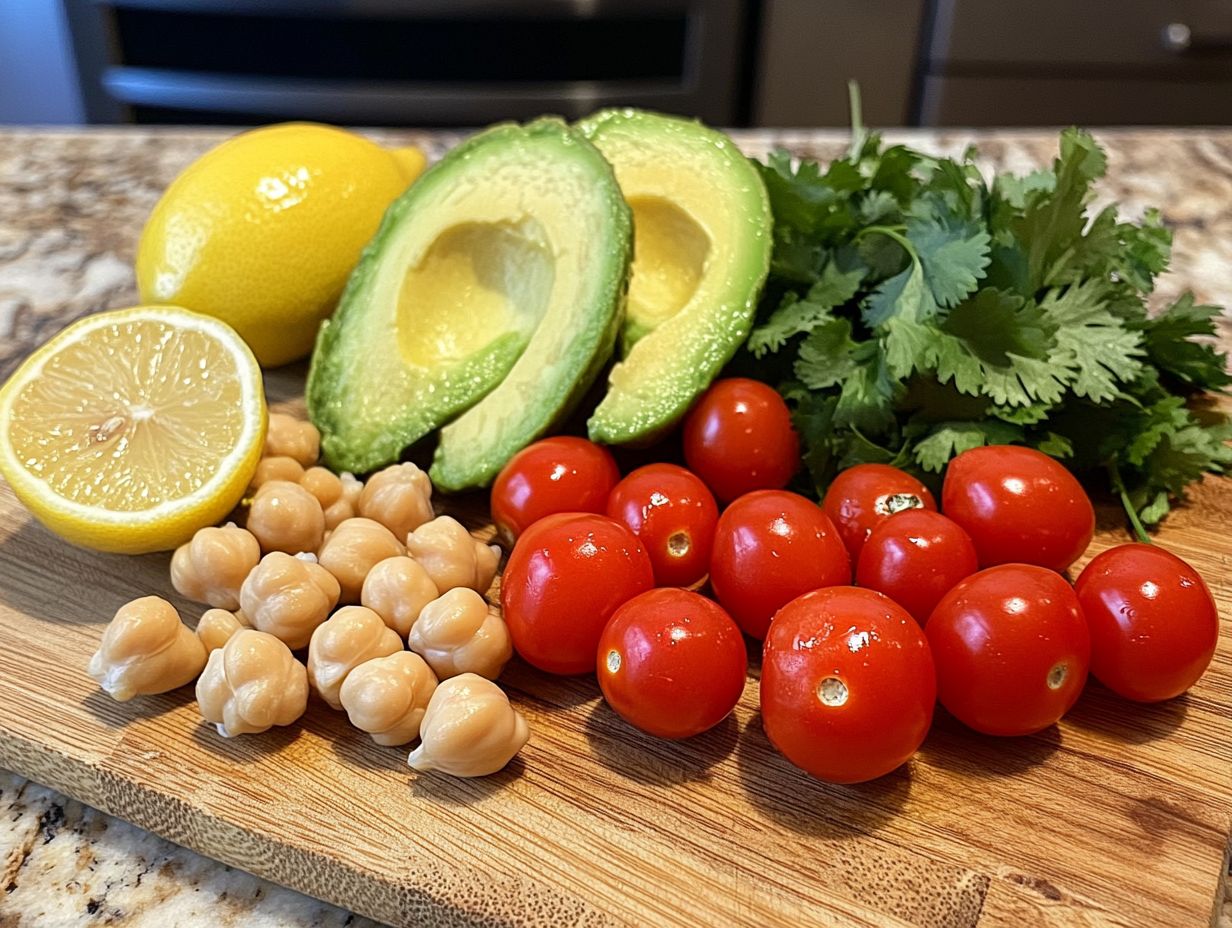
A well-stocked vegan pantry is essential for convenient cooking and meal preparation, filled with kitchen essentials and wholesome ingredients. Having a variety of staple ingredients readily available enables the quick preparation of delicious and nutritious meals, while also allowing for flexibility in cooking methods and recipe variations.
Common pantry ingredients such as grains, legumes, nuts, seeds, and spices not only enhance the flavor of meals but also serve as important sources of protein and healthy fats.
Essential Vegan Pantry Items
Essential vegan pantry items for cooking include versatile ingredients such as dried beans, lentils, whole grains, and a variety of spices. Keeping these items on hand allows you to prepare quick, nutrient-dense meals, perfect for quick snacks and easy vegan recipes.
They also provide the flexibility to adapt recipes and make healthy ingredient substitutions that cater to your tastes and cooking style.
Tips for Successful Vegan Cooking
The following cooking tips and techniques can enhance your success with vegan cooking and improve your overall skills in the kitchen, incorporating cooking hacks and diverse cooking methods.
Understanding various cooking methods, balancing flavor and nutrition through creative spice combinations, planning meals effectively, and knowing how to make substitutions and adapt recipes are essential for cooking success, ensuring meals meet various dietary restrictions.
By mastering these techniques, you can create diverse, healthy, and delicious vegan meals that cater to different needs and preferences.
Substitutions and Cooking Techniques

Substitutions and cooking techniques play a crucial role in vegan cooking, allowing for ingredient flexibility and flavor enhancement. This includes replacing dairy, eggs, and meat with plant-based alternatives, as well as becoming familiar with various cooking methods such as sautéing, steaming, and roasting to achieve the desired flavor and texture in flavorful dishes.
For example, almond milk can provide a richness similar to cream, while flaxseed meal serves as an effective binder for ingredients, showcasing the versatility of vegan alternatives. Nutritional yeast adds a creamy, cheesy flavor without the use of dairy, and aquafaba can be utilized as a versatile egg substitute in a wide range of recipes.
Additionally, grilling vegetables can enhance their natural sweetness, and blending can improve the texture of sauces.
How to Incorporate More Vegan Meals into Your Diet
Incorporating more vegan meals into your diet can be a positive and rewarding journey that promotes both health and sustainability, offering diverse recipe ideas and nutritional value. You can take your time and make gradual changes by introducing Meatless Mondays, or you may choose to jump right in and fully adopt a plant-based lifestyle.
Regardless of the approach you take, the transition can be both enjoyable and fulfilling, supported by online recipes and community cooking. You can easily integrate vegan meals into your daily routine by planning your meals, experimenting with new recipes, and joining a cooking community, all of which enhance your culinary skills.
These activities will not only enhance your culinary skills but also deepen your connection to food, encouraging sustainable ingredients and food creativity.
Gradual vs. Immediate Changes
Decide whether you want to incorporate vegan meals into your diet gradually or all at once, considering your personal taste combinations and dietary preferences. Gradual changes allow you to learn about the plant-based lifestyle and try new recipes while progressively adding more vegetables, grains, and legumes to your meals, optimizing food storage and leftovers.
On the other hand, making immediate changes can provide a fresh perspective on your diet and encourage you to experiment right away. For instance, a gradual approach could involve trying “Meatless Mondays,” which gives you the flexibility to choose your own meal options without feeling overwhelmed, using seasonal ingredients and exploring ethnic flavors.
This also allows you to explore new cooking methods, such as roasting or stir-frying, and discover exciting tastes and textures in vegetables, legumes, grains, and plant-based proteins, enhancing your dining experience. Conversely, an immediate change may involve fully embracing vegan meal planning by preparing more complex dishes, such as vegan paella or jackfruit tacos, which can quickly expand your culinary repertoire with diverse food textures and gourmet flavors.
Both approaches are valid; gradual changes promote comfort and adaptability, while immediate changes inspire excitement and creativity, supported by meal prepping and portion sizes.
